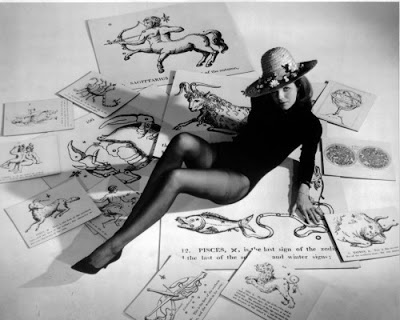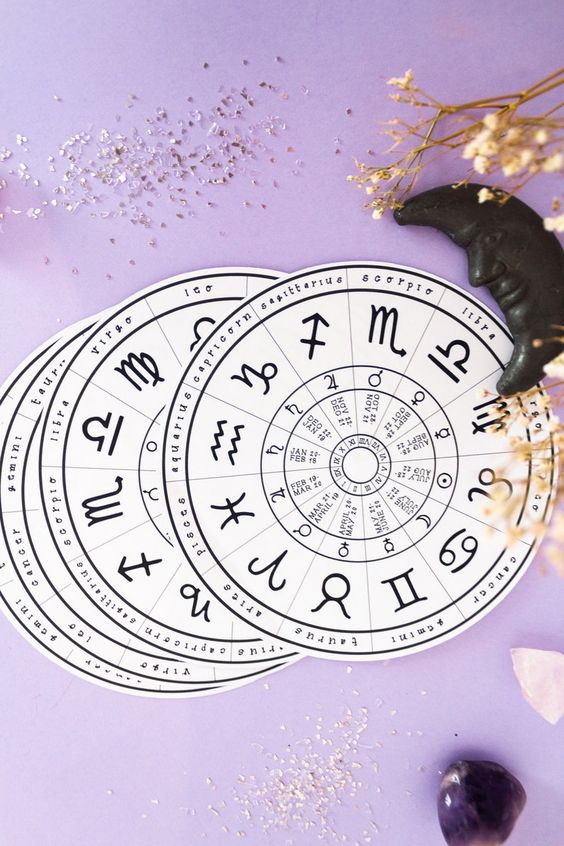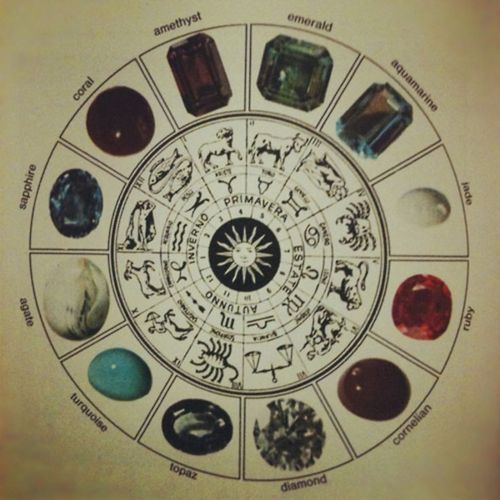
The Astrologer’s Handbook
 Question: Do you have any great book suggestions:
Question: Do you have any great book suggestions:
Where can one find good astrology books? This search is often driven by a genuine thirst for knowledge and a desire to explore the mysteries and the art of astrology. While I can guide you to some interesting books, it’s important to trust your own instincts to find the ones that resonate with you. There are many great titles out there, waiting to be discovered, but not all astrological writings are equal.
Astrology
Astrology by Louis MacNeice is a decent book in its field. With its sturdy hardcover and three hundred pages, it offers a wealth of knowledge on astrology’s notorious past. The book is filled with photos and detailed illustrations, making it a pleasure to explore. While it might look like just a historical account of astrology at first, a deeper dive reveals an engaging backdrop of astrology that goes beyond the usual stereotypes. MacNeice’s invites readers on a journey through time. The book shares wisdom from past astrologers, whose words still resonate today. Inside the cover, a passage encourages readers to explore self-discovery: “A man can’t do much about London’s traffic; but you can – now – cast your own horoscope.”
Astrology stands as a phenomenon worthy of exploration, tracing its roots back to ancient Babylon. Once the domain of kings, it now reaches millions through daily horoscopes in newspapers. Astrology, often called “the most beautiful of the sciences,” continues to wield a powerful influence, rivaling even the longevity of Christianity.
In this work, MacNeice—a poet, playwright, and scholar—takes on the role of an impartial observer. He explores astrology, examining both its honorable and less reputable aspects. With careful consideration, he presents the arguments of both its supporters and detractors.
MacNeice takes a look at the moments where astrological wisdom aligned with human destiny, as well as times when the stars did not follow the predicted path. He delves into the meaning of the planets and their influence on human character and temperament, unraveling the connections between Zodiac signs and our collective consciousness. As you journey through this book, you will face a significant question: Are you a skeptic or a believer? This question can only be answered by reading, absorbing, and contemplating astrology for yourself.
“Lavish and beautifully illustrated volume surveying the whole field of astrology beginning with the strange fact that the Nazis imprisoned all their astrologers during the war, and including a great deal of carefully researched evidence from Ashurbanipal to Carl Jung” – Evening Standard
“Louis MacNeice’s point, that astrology was inevitable as part of man’s struggle to understand the universe and had every reason to exist until science was well advanced, is well proved. – New Society
Similarly, while run-of-the-mill practitioners rest their claims of horary antiquity of what sceptics have called this “fossilized science,” the intellectual among modern astrologers are anxious to liberate their subject from the dead hand of tradition. A leading Swiss astrologer, Karl Ernst Krafft (who figures in an extraordinary story to be recounted in Chapter 7), once went so far as to write: The tradition is like a rotting corpse, and should not be brought to life again.” A similar line is taken by several of the leading Americans.
Even within traditional astrology, if we look back through the centuries, we find a great range of beliefs – from the ancient (and medieval) conception of the stars as gods or divine animals (typical question: What food do they eat? typical answer: Purer food than we do) to the 15th-century Italian humanists’ comparison of the star-man relationship to a struck harp that no one has touched. And astrology has usually attracted a wide range of adherents. In the early 16th-century France, the distinguished physician Cornelius Agrippa accepted astrology (though he renounced it later) at about the same time that famous obscurantist prophet Nostradamus was writing his scrambled verse quatrains that have since given much pleasure to lovers of puzzles and prediction.
The Astrology of Karma
The Astrology of Karma by Pauline Stone might be dismissed as a collection of guesses about one’s karmic destiny. However, this book contains a decent amount of material on astrology. It encourages you to examine the cause and effect that shapes your existence, reminding you that every decision and action has far-reaching consequences. Stone’s work calls you to move beyond passivity and become an active participant in shaping your destiny. You have the power to break free from past patterns, and create a future filled with awareness and purpose.
“Uranian detachment is needed to prevent us from becoming totally immersed in the feelings of others. Although apparently contradictory, we cannot really love others until we have become detached from them, for universal love is equally distributed amongst the whole. Uranian detachment is needed to prevent us from being totally immersed in the feelings of others until we have become detached from them, for universal love is distributed amongst the whole.
Moreover, the book includes an excellent interpretation of John Lennon’s chart at the end, which alone makes it worth the price. You read through it and gain information into your aspects from personal planets to Saturn and the outer planets. It explains how these planets express themselves, providing both positive and negative readings. This helps you understand how to best harness your energy and how you might have expressed it in the past. It’s not for everyone, but even if you’re not into astrology or karma, you can still enjoy it as standard interpretations.
Barriers and Boundaries
One of my favorite books is by Liz Greene, called Barriers and Boundaries, but anything by Liz Greene is always worth reading. This book focuses on one’s defenses, with a lot of insightful information about Saturn and Chiron. As always, it’s an excellent psychological read. For example, in the case of Leo, Greene suggests that many Leos will fiercely defend against any implication that they are ordinary, like everyone else. They may lead mundane lives but harbor secret fantasies of greatness or superiority, revealing their inner defenses at work. Leo doesn’t necessarily need others to affirm their specialness as long as the inner connection remains strong.
The Value of Books
The more you delve into astrology, the more you might get bored with overly simplistic astrology books unless they are written in a clever, funny, or psychological way. If a book only tells you that Aries is assertive, Leo is creative, and Sagittarius loves to travel without offering deeper insights, it can be frustrating. However, revisiting the basics can sometimes be beneficial, but as your study progresses, you tend to gravitate towards more complex topics, making it hard to recommend books.
Books Through Time
Astrology, Karma, and Transformation by Stephen Arroyo is a worthy read. Seminar books are also often excellent, and many books from the late ’80s were particularly good. I recently explored books from different decades and noticed an interesting trend: late ’80s books were very psychological and thorough, while books from the 1900s were often shorter and narrower in scope, though some were still good.
From the 2000s onward, there’s been a shift towards mindful astrology, radical acceptance astrology, and even LGBTQ+ astrology. The changing times are reflected in the book titles, like “Self-Care for Aries through Pisces.” There are also books that focus on the darker aspects of the signs, as well as many on love signs and compatibility, catering to those seeking astrology and relationship advice.







 Venus-Pluto Synastry: A Love So Powerful That It Might Just Kill Them
Venus-Pluto Synastry: A Love So Powerful That It Might Just Kill Them
 Uranus Transits 8th the House: Rebirth from Chaos
Uranus Transits 8th the House: Rebirth from Chaos
 Mars Conjunct Pluto Synastry
Mars Conjunct Pluto Synastry
 Uranus Transits: 1st House: Winds of Change:
Uranus Transits: 1st House: Winds of Change:
 Sun Conjunct Pluto Synastry: Enlightening or Annihilating
Sun Conjunct Pluto Synastry: Enlightening or Annihilating
 Venus Conjunct Pluto Natal Aspect
Venus Conjunct Pluto Natal Aspect
 Uranus in the 2nd House: The Price of Freedom
Uranus in the 2nd House: The Price of Freedom
 Uranus Transits the 4th House: The Chaotic Path to Personal Inner Growth
Uranus Transits the 4th House: The Chaotic Path to Personal Inner Growth
 Transiting Uranus Trines Mercury: Through New Eyes
Transiting Uranus Trines Mercury: Through New Eyes
 Flash Forward: How Uranus Reveals Your Future Before You’re Ready
Flash Forward: How Uranus Reveals Your Future Before You’re Ready
 Uranus Transits Mars: My Eco-Lifestyle Changes
Uranus Transits Mars: My Eco-Lifestyle Changes
 Mercury in the 9th House: The Mystic Messenger
Mercury in the 9th House: The Mystic Messenger
 Scorpio’s Cold Withdrawal
Scorpio’s Cold Withdrawal
 The Neptunian: Highs, Heartache, and the Water Slide of Disclosure
The Neptunian: Highs, Heartache, and the Water Slide of Disclosure
 Uranus Transits Mars: My Carbon Footprint Intervention
Uranus Transits Mars: My Carbon Footprint Intervention
 Sun Square Pluto Synastry: You’ve Got That Power Over Me
Sun Square Pluto Synastry: You’ve Got That Power Over Me
 Venus Trine Pluto: Dark Desires
Venus Trine Pluto: Dark Desires
 Mars in the 12th House: Are You a Passive Victim of Weird Energies?
Mars in the 12th House: Are You a Passive Victim of Weird Energies?
 Saturn Square Pluto Natal Aspect
Saturn Square Pluto Natal Aspect
 Pluto in Aquarius: Collective Welfare
Pluto in Aquarius: Collective Welfare